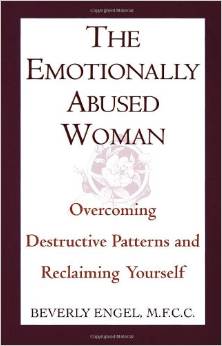
The Emotionally Abused Woman : Overcoming Destructive Patterns and Reclaiming Yourself Order
If you feel unfairly criticized, controlled by others, or are afraid of being lonely, you could be suffering from emotional abuse. Now there is help in this compassionate sourcebook. Bevery Engel, a marriage, family, and child therapist, guides you through a step-by-step recovery process to help you heal the damage done in the past.
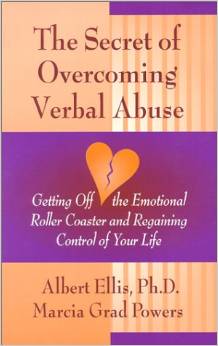
The Secret of Overcoming Verbal Abuse: Getting Off the Emotional Roller Coaster and Regaining Control of Your Life Order
This book was witten in response to requests by the coauthors’ clients, students, and readers of their boks for an effective, practical ways to reduce their pain, face their fears and heal themselves and their lives-whether they stay or leave their verbally abusive relationship. Alberat Ellis, Ph.D. is coauthor of Guide to Rational Living, and is a renowned psychologist and originator of modern Cognitive Therapy and Rational, Emotive, Behavior Therapy (REBT), author of numerous books and professional articles, and director of the Albert Ellis Institute in New York. Coauthor, Marcia Grad Powers, is an accredited REBT educator, credentialled teacher, university psychology and personal growth lecturer, popular author. This book will make a major difference in the lives of countless women who deal every day with one of the most disturbing and challenging societal issues of our time.
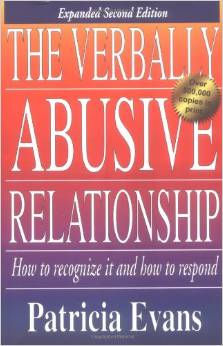
The Verbally Abusive Relationship: How to Recognize it and How to RespondOrder
Review — Are you now, or have you ever been, in relationships with family, friends, or mates who have been verbally abusive? Is your happiness with someone you love continually threatened by interactions that continually undermine your self-esteem? Do you feel trapped in a relationship that keeps decaying in a downward spiral of overt or passive-aggressive abuse?
If so, this book could be your life raft, either carrying you toward repair of the existing relationship or the effects of past relationships or offering liberation from your current confusion. Its practical approach can help clear your head and possibly change your life. The only criticism that I and other readers have is that the author assumes verbal abuse is almost always directed by males toward females, which, in my experience and that of others I know, is not necessarily the case. Highly Recommended.
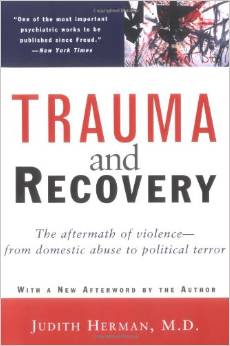
Trauma and Recovery Order
Review — Herman links the public traumas of society to those of domestic life in this provocative work of psychiatric theory.
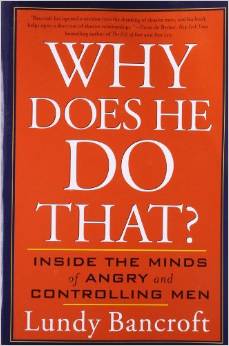
Why Does He Do That: Inside the Minds of Angry and Controlling Men Order
Review — This fascinating investigation into what makes abusive men tick is alarming, but its candid handling of a difficult subject makes it a valuable resource for professionals and victims alike. Bancroft, the former codirector of Emerge, the nation’s first program for abusive men, has specialized in domestic violence for 15 years, and his understanding of his subject and audience is apparent on every page. “One of the prevalent features of life with an angry or controlling partner is that he frequently tells you what you should think and tries to get you to doubt or devalue your own perceptions and beliefs,” he writes. “I would not like to see your experience with this book re-create that unhealthy dynamic. So the top point to bear in mind as you read [this book] is to listen carefully to what I am saying, but always to think for yourself.” He maintains this level of sensitivity and even empathy throughout discussions on the nature of abusive thinking, how abusive men manipulate their families and the legal system and whether or not they can ever be cured. Jargon-free analysis is frequently broken up by interesting first-person accounts and boxes that distill in-depth information into simple checklists. Bancroft’s book promises to be a beacon of calm and sanity for many storm-tossed families.
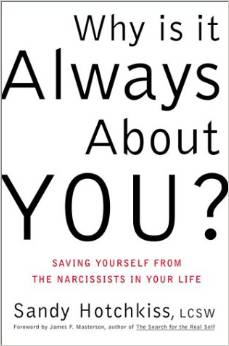
Why is it Always About You?: Saving Yourself from the Narcissists in Your LifeOrder
Review — Well-written; the best book I’ve read on the subject. The commentary on the social aspects of narcissism makes this author’s approach relevant to every reader. Practical, realistic coping strategies as well as models for good-enough parenting. Great book for parents and teenagers to read together!
Synopsis: Narcissism is a healthy, necessary stage twice in a person’s life, during the toddler and teen years, and gives an individual an inflated sense of confidence that enables him or her to leave the security of the parental bond to explore the world with newly acquired abilities. If children receive good-enough parenting when reality deflates this bubble of omnipotence, they reach the end of their narcissistic explorations with a newly integrated sense of self and awareness of the separateness of other people. If they are traumatized or are insecure in their attachment to primary caregivers at these crucial stages, they never “graduate” from the school of narcissism, and become “toxic people,” viewing others merely as extensions of themselves and therefore without separate needs and feelings. You probably encounter narcissistic people every day without understanding why they are so rude, have an unfounded sense of entitlement, poor boundaries, or seem to be more “special” than other people. Many of us have been raised in families that pass down narcissitic vulnerabilities, leaving us prey to narcissists, who are always on the lookout for people who can be manipulated into supplying external validation of their “specialness,” either by annexing you and your talents to serve them or by deflating you so as to inflate themselves
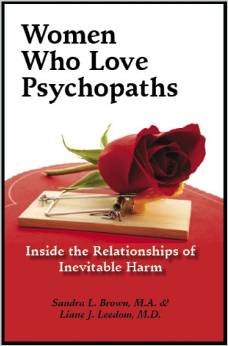
Women Who Love Psychopaths Order
Review — Based off a case study of seventy-five women, Women Who Love Psychopaths is Sandra Brown’s latest tome dealing with dangerous men, and how to spot them before they can seriously cause damage. Liane Leedom also contributed, however her view of psychopathy is something more along the lines of the DSM-IV category, which anyone who studies the subject know is grossly misleading and quite inaccurate. The book offers a look inside the minds of psychopaths (which is the part I recommend you skip), as well as the minds and emotional traits of the women that tend to be their victims. It also gives an extremely details look at the ‘bonding’ process these women go through, how their psychopaths were able to hook them and keep them once their pathological behavior starts to rear its ugly head.



